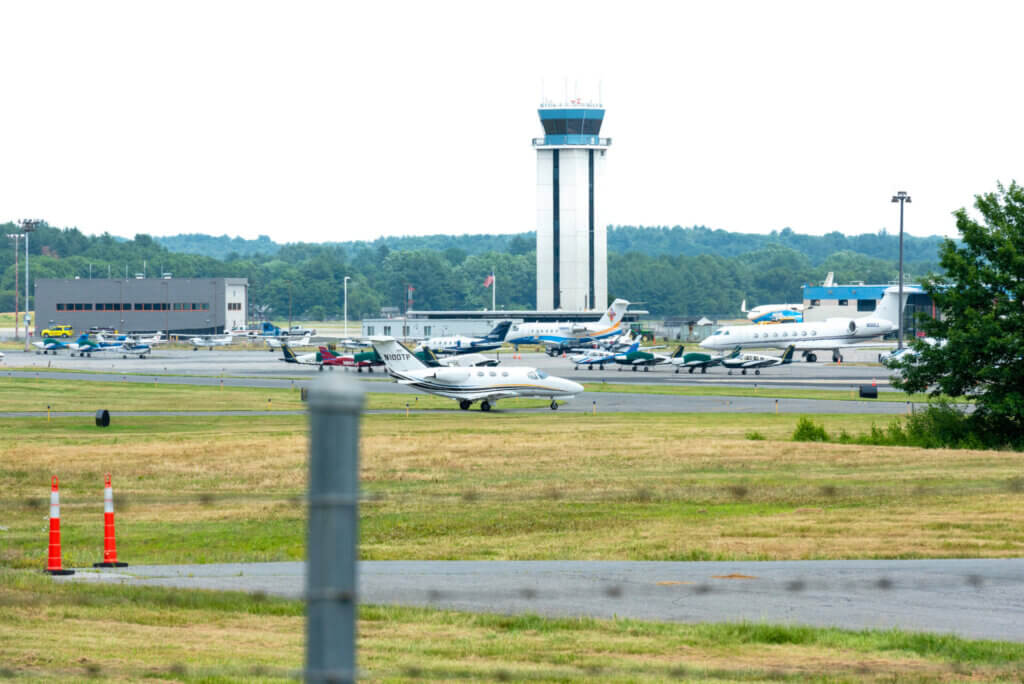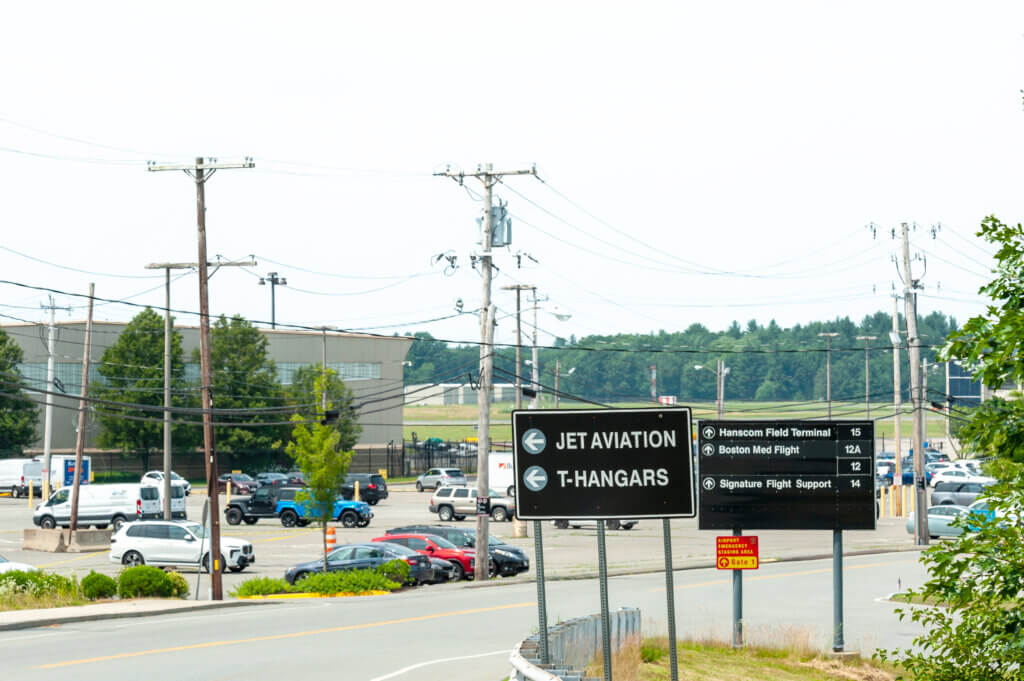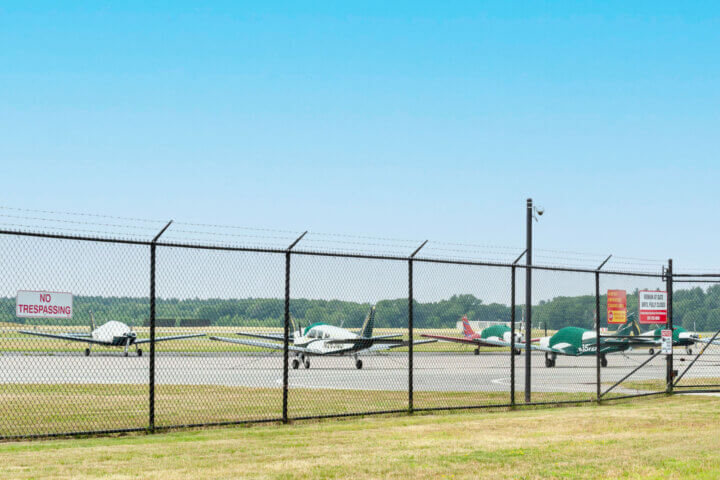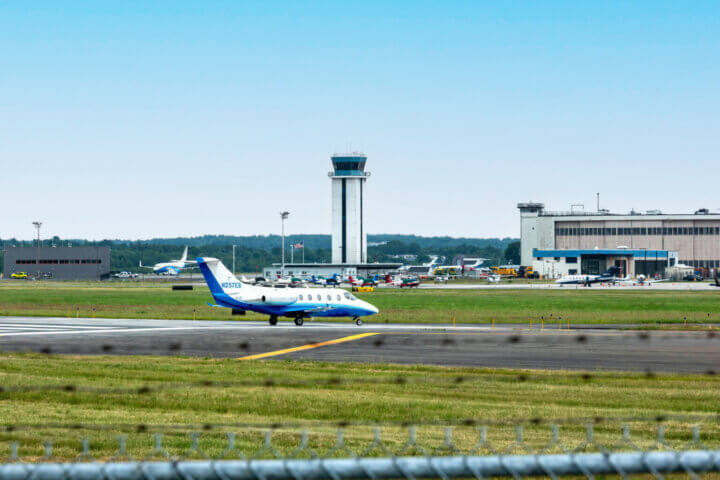By Erin Tiernan — Erin@concordbridge.org
Pressure from state lawmakers, in the form of a change to Massport’s charter, to minimize carbon seems unlikely to upend a proposal to expand private jet storage at Hanscom Field, officials said.
“As it relates to the project to build more hangars, that project is continuing,” Massport spokesperson Jennifer Mehigan told The Concord Bridge.
State Sen. Michael Barrett (D-Lexington) said the controversial proposal to add 17 hangars at the airport was the “motivation” behind a just-approved change by the state legislature to Massport’s charter. It is the first-ever change to the agency’s mission since its creation in 1956.
‘A new day’
The quasi-public agency operates the state’s ports and three airports, including Hanscom.

“We expect Massport to change course — [and] not only with respect to the Hanscom hangars,” said Barrett, who crafted the language included in a just-passed climate bill. “We are going to be looking to Massport to signal that this is a new day.”
Because Massport operates outside the Legislature’s authority, Barrett said the legislation “doesn’t guarantee” that Massport will scrap Hanscom or make any sweeping climate-related policy changes. But, he said, failing to change course would be “politically unwise.”
Barrett said that could mean “further review” from the Legislature. Environmental groups have said it opens the door to lawsuits.
“It’s going to become a matter of interpretation in a lawsuit,” said Kati Winchell of Concord-based Save Our Heritage, a non-profit opposed to the expansion.
“Massport will argue that they promote climate priorities and environmental justice principles. The courts will have to decide if they actually take climate seriously.”
The charter change, which Gov. Maura Healey signed into law on November 21, directs Massport to consider “environmental protection and resilience, reductions in greenhouse gas emissions, and environmental justice principles” in its decision-making.
Barrett said the legislation is an effort to align Massport’s priorities with the state’s aggressive carbon-cutting strategy.
Representatives of Runway Realty Ventures and North Airfield Ventures, the private developers behind the proposal, did not respond to questions from The Bridge.

Aviation’s toll
Transportation is the largest source of greenhouse gas emissions in the United States and in Massachusetts. Aviation accounted for 17 percent of emissions in the transportation sector in 2019, the most recent year for which data not affected by pandemic shutdowns is available from the Congressional Budget Office.
Opponents say the proposed private jet hangars at Hanscom could dramatically increase greenhouse gas emissions just as most municipalities and state agencies are working to meet aggressive carbon-reduction goals.
A dozen cities and towns across Massachusetts — including Concord — have passed resolutions opposing the hangar expansion. Nearly 14,000 people have signed a petition urging the governor to stop it.
A report funded by Save Our Heritage found the Hanscom hangar project could add as many as 6,000 private jet flights, producing another 150,000 tons of carbon emissions annually.
Project developers claimed in environmental filings that the expansion would have a net-zero impact on greenhouse gas emissions.
Contrasting claims were a major sticking point in the state’s June rejection of an environmental impact report by developers. The state directed developers to submit a supplemental draft report addressing the questions.
The project has elicited widespread opposition from the four towns neighboring the airport — Concord, Bedford, Lexington, and Lincoln.

Contrasting state policies
The expansion proposal has spotlighted the contrasting priorities of transportation and economic policy in the era of climate change.
Massachusetts leaders are moving forward with an ambitious climate roadmap to achieve net zero greenhouse gas emissions by 2050. The 2022 law sets requirements to reduce fossil fuel dependency, including greater reliance on renewable energy sources for electricity, revamped building codes, and appliance efficiency standards.
Most airports, including Hanscom and Boston’s Logan International, do not account for carbon emissions from planes coming and going. The Federal Aviation Administration says this is because it’s difficult to track emissions from flights operated by commercial airlines over large areas.

Stop Private Jet Expansion, a coalition of groups opposing the Hanscom project, points to data showing that private jets are among the most polluting form of travel per passenger mile for their carbon footprint.
“Massport’s and [developers’] plans would double the private jet hangar capacity at the airport, much of it for luxury trips to resort destinations for the privileged few,” the group said in a statement. “It is the ultimate environmental injustice for a small number of the ultra-wealthy to pollute our climate in such an unconstrained way.”
The aviation industry has continued to expand even as efforts to curb pollution have taken off locally. The governor signed the Massport charter change within days of the publication of a new international study showing carbon dioxide emissions from private jet travel surged 46 percent from 2019 to 2023.
Hanscom Field is the largest private jet airport in New England, with more than 38,000 private jet flights a year, data shows.







